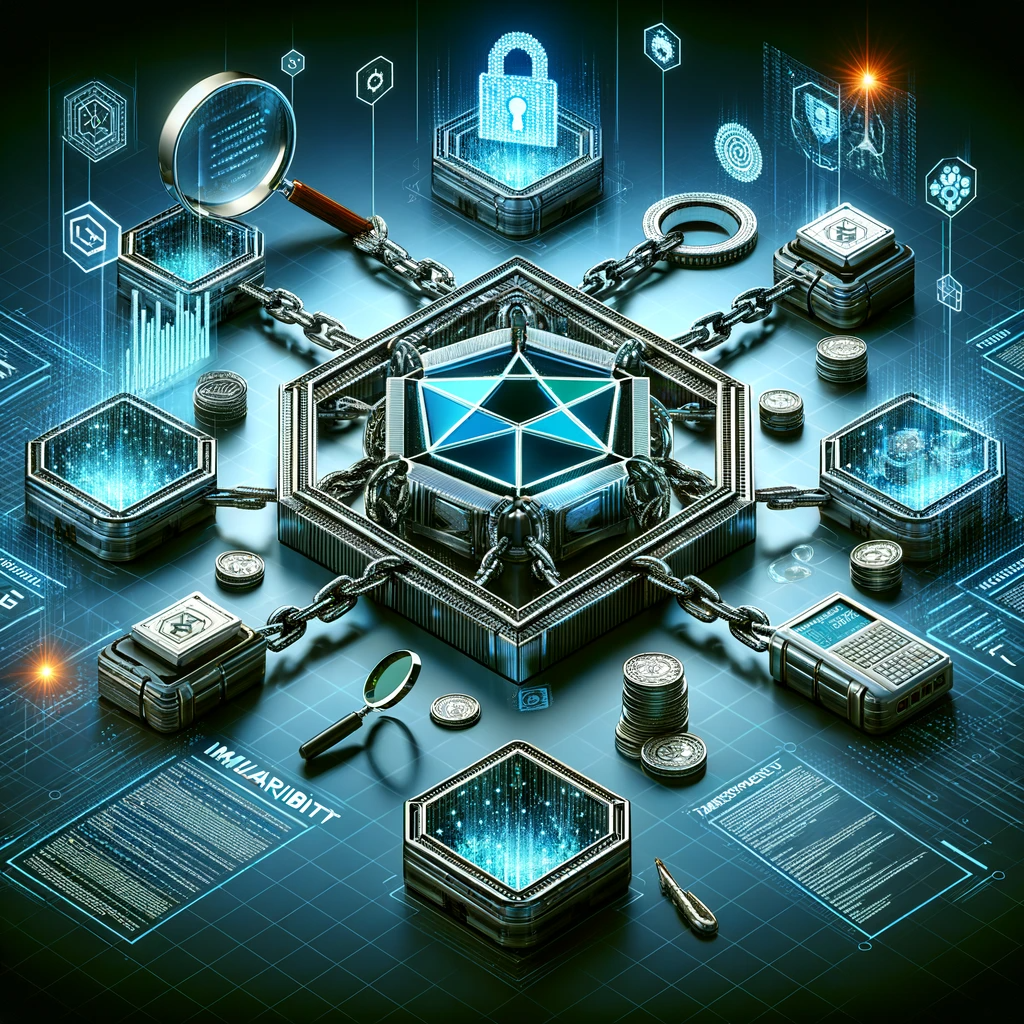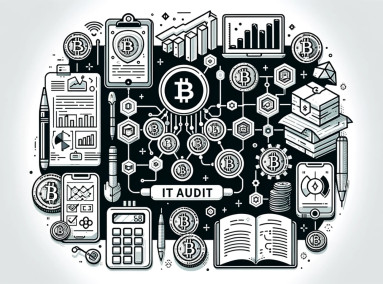IT Audit Blockchain in IT Auditing: Enhancing Security and Efficiency
23-11-26
본문
Section 1: In-Depth Analysis of Blockchain Technology in IT Audit
The Integration of Blockchain in IT Auditing
Blockchain technology, primarily known for its association with cryptocurrencies, holds significant potential for revolutionizing the field of IT auditing. This technology, with its core principles of immutability, transparency, and decentralization, presents an innovative approach to enhancing traditional IT audit processes. The critical advantage lies in its capability to create unalterable records, ensuring data integrity and reliability, which are fundamental in the auditing realm.
Immutability: A Cornerstone for Auditing
Immutability is arguably the most crucial feature of blockchain technology from an IT audit perspective. Once data is recorded on a blockchain, it becomes nearly impossible to alter or delete, ensuring the permanence and authenticity of the data. This attribute is particularly beneficial in maintaining a reliable audit trail, significantly reducing the potential for fraud and data manipulation.
Enhanced Data Accessibility and Real-time Analysis
Blockchain technology facilitates access to real-time data, enabling auditors to conduct more dynamic and responsive audit processes. This instant availability of data is critical, especially in environments where timely information is essential for effective risk management and decision-making. It allows auditors to detect and address potential issues or irregularities promptly.
Smart Contracts: Automating Audit-Related Processes
A notable innovation in blockchain technology is the concept of smart contracts. These are self-executing contracts with the terms directly written into code. In the context of IT auditing, smart contracts can automate various processes, including compliance verification and financial reporting. This automation capability can significantly enhance efficiency, reducing reliance on manual processes and potentially decreasing the likelihood of human error.
Blockchain's Role in Compliance and Reporting
Blockchain technology can simplify and streamline compliance and reporting processes in IT auditing. Its inherent transparency and traceability aid in ensuring that organizations adhere to regulatory requirements. Moreover, the automation capabilities provided by smart contracts can facilitate faster and more accurate financial reporting, which is advantageous to both auditors and stakeholders.
Security Advantages
The decentralized nature of blockchain provides an additional layer of security. Traditional centralized databases are more vulnerable to cyber-attacks, whereas blockchain’s distributed ledger technology offers a more secure alternative. This feature is particularly pertinent in the context of IT audits, where data security is paramount.
Challenges and Considerations
While blockchain presents numerous benefits, it also poses challenges. The technology is still evolving, and there are concerns regarding scalability, energy consumption, and integration with existing systems. Auditors need to stay abreast of these developments and consider the practical implications of incorporating blockchain into their auditing practices.
Future Outlook
As blockchain technology continues to mature, its application in IT auditing is expected to become more widespread. This evolution will likely introduce new methodologies and practices in the audit process, emphasizing the need for auditors to remain informed and adaptable to these changes.
In conclusion, blockchain technology offers transformative potential for IT auditing, providing enhanced data integrity, real-time analysis capabilities, automation in audit-related tasks, and improved compliance and reporting processes. Its integration into IT audit practices signifies a shift towards more secure, efficient, and reliable audit methodologies, paving the way for a new era in IT auditing.
Section 2: Case Study – Implementing Blockchain in IT Audit
Background: Adoption of Blockchain in a Multinational Corporation
Consider a multinational corporation with complex IT systems, operating in diverse regulatory environments. The corporation handles a vast array of sensitive data, making robust IT audit processes critical. Traditional auditing methods are proving inadequate due to their time-consuming nature and challenges in ensuring data integrity.
Challenge: Overcoming Traditional Auditing Limitations
The primary challenge lies in addressing the inefficiencies of traditional auditing methods. The corporation faces difficulties in real-time data access, ensuring data integrity, and efficiently managing compliance across different regions. These limitations hinder the corporation’s ability to conduct effective and timely IT audits.
Risk Assessment: Identifying Key Concerns
The corporation identifies several risks associated with its current IT audit processes:
Data tampering and fraud risks due to inadequate data integrity controls.
Inefficiencies in compliance management across various regulatory frameworks.
Delays in identifying and responding to IT-related risks due to lack of real-time data.
Internal Controls: Implementing Blockchain Solutions
To mitigate these risks, the corporation decides to integrate blockchain technology into its IT audit framework. This includes:
Developing a private blockchain for secure and immutable data storage.
Implementing blockchain-based smart contracts to automate compliance processes.
Utilizing blockchain for real-time transaction and activity monitoring.
Control Activities: Evaluating the Blockchain Implementation
The corporation evaluates the effectiveness of blockchain implementation through:
Data Integrity: Assessing the immutability and accuracy of data recorded on the blockchain.
Compliance Efficiency: Monitoring the performance of smart contracts in automating compliance checks.
Real-time Monitoring: Evaluating the capability of the blockchain system to provide up-to-date information for ongoing risk assessment.
Specific ITGC Assessments:
Application Controls (APP): Assessing the functionality and security of blockchain-based applications, ensuring they perform as intended and provide accurate data for audit purposes.
Database Controls (DB): Evaluating the integrity and security of the blockchain database, ensuring it is resistant to unauthorized access and manipulation.
Operating System Controls (OS): The auditor examined the security and stability of the operating systems running the blockchain infrastructure. This included assessing system access controls and monitoring for any vulnerabilities that might compromise the blockchain network.
Network Controls (NW): Analyzing the security of the network infrastructure supporting the blockchain, ensuring secure data transmission and protection against cyber threats.
Lessons Learned
Technology Integration: Seamless integration of blockchain with existing IT systems is crucial for realizing its full potential in IT auditing.
Adaptability: The dynamic nature of blockchain technology requires ongoing adaptation and upskilling of the IT audit team.
Stakeholder Engagement: Effective communication with stakeholders about the benefits and implications of blockchain in IT auditing is essential for successful implementation.
This case study demonstrates the transformative potential of blockchain in enhancing IT audit processes, offering solutions to traditional challenges and paving the way for more efficient, secure, and reliable auditing practices in a complex and evolving technological landscape.
Sources:
[1] https://www.ibm.com/topics/what-is-blockchain
[2] https://www2.deloitte.com/us/en/pages/audit/articles/blockchain-financial-reporting.html



